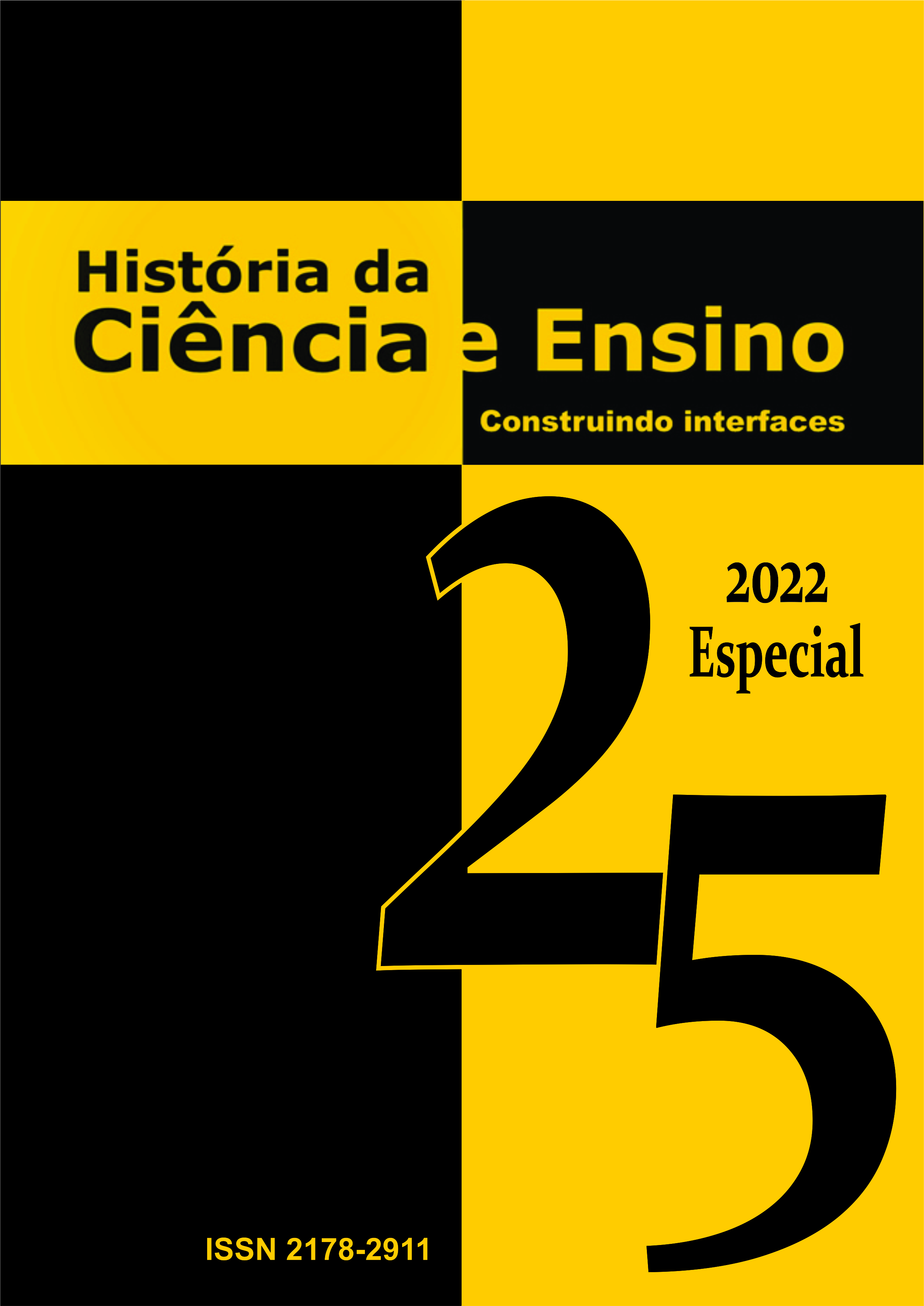History of Sciences and Didactis
DOI:
https://doi.org/10.23925/2178-2911.2022v25espp390-409Abstract
Much has been discussed about the importance of History of Sciences for Science Education, for example, that: motivates students by humanizing Natural Sciences and bringing them closer to the interests of social groups; promotes reflection and development of critical thinking about sciences; increases the significance of science teaching content; improves the training of science teachers and students, by clarifying the process of elaborating scientific knowledge and its social role. However, little has been discussed about the relationship between History of Sciences and Didactics, the latter understood as the branch of Pedagogy that deals specifically with the teaching-learning process. The purpose of this work is to argue in favor of a necessary relationship between History of Science and Didactics, more specifically, with teaching contents. In order to do so, we take as evident the historicity of human societies and, consequently, of culture, aligning ourselves with a particular conception of the History of Sciences; we explain the relationships between the concepts of education, teaching, Pedagogy and Didactics, which we adopted; we discuss the teaching-learning process from a cultural-historical perspective and the place of contents in this process — generally and specifically — to conclude with the thesis that History of Sciences is a necessary part of science teaching contents. Finally, we propose a way in which History of Chemistry can provide the chemical knowledge of reference for the elaboration of the content of the teaching-learning process of the concepts of acid, as an example of how the historical-didactic-pedagogical framework presented can be used in a specific case.


